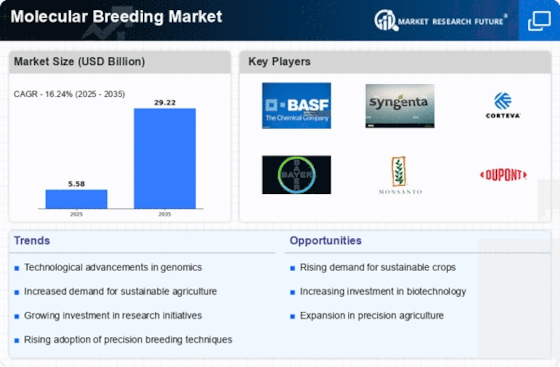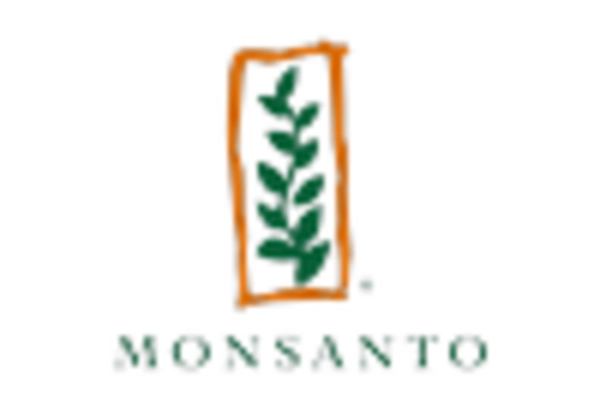Market Analysis
In-depth Analysis of Molecular Breeding Market Industry Landscape
molecular breeding market dynamics of are profoundly influenced by various factors that shape its growth, demand, and overall trajectory. Molecular breeding, also known as marker-assisted breeding, is an advanced plant breeding technique that utilizes molecular markers and genetic information to accelerate the breeding process, enhance genetic gain, and develop improved crop varieties with desirable traits. Several key factors drive the dynamics of this market.
One of the primary drivers of the molecular breeding market is the increasing demand for higher-yielding, climate-resilient, and nutritionally enhanced crop varieties to address global food security challenges. As the world's population continues to grow, there is a pressing need to produce more food with fewer resources, while also mitigating the impacts of climate change on agriculture. Molecular breeding offers a powerful tool for breeders to efficiently select and introgress beneficial traits, such as yield potential, disease resistance, drought tolerance, and nutritional quality, into elite crop germplasm, thereby accelerating the development of improved crop varieties that meet the diverse needs of farmers, consumers, and the environment.
Advancements in genomics, bioinformatics, and high-throughput sequencing technologies have revolutionized the field of molecular breeding, driving innovation and expanding the scope of genetic resources available for crop improvement. The availability of high-density molecular markers, genomic databases, and advanced analytical tools has enabled breeders to conduct genome-wide association studies (GWAS), quantitative trait locus (QTL) mapping, and genomic selection to identify and harness genetic variation underlying complex traits of interest. This has led to the discovery of novel genes and alleles associated with important agronomic traits, paving the way for more precise and efficient breeding strategies.
Regulatory policies and intellectual property rights (IPRs) play a significant role in shaping the dynamics of the molecular breeding market. Governments and regulatory agencies impose regulations and guidelines to ensure the safety, efficacy, and ethical considerations associated with genetically modified organisms (GMOs) and biotechnology-derived products. Compliance with regulatory requirements, such as biosafety assessments, environmental risk assessments, and product approvals, is essential for molecular breeding companies to commercialize genetically improved crop varieties and gain market acceptance. Additionally, intellectual property protection of molecular breeding technologies, including patents, trademarks, and plant variety protection (PVP), incentivizes investment in research and development and fosters innovation within the industry.
Technological advancements in molecular breeding methodologies and platforms drive innovation and competitiveness in the molecular breeding market. Research efforts focus on developing new molecular markers, genotyping platforms, and bioinformatics tools to streamline the breeding process, enhance trait discovery, and accelerate variety development. This includes the integration of genomic data with phenotypic data obtained from field trials and breeding programs to facilitate genotype-phenotype associations and marker-assisted selection (MAS). Furthermore, collaborations between public research institutions, private companies, and international consortia facilitate knowledge exchange and technology transfer, enabling broader access to molecular breeding tools and resources.
Global collaboration and partnerships further contribute to the dynamics of the molecular breeding market. With the increasing interconnectedness of the global research community, collaborative efforts are underway to share genetic resources, genomic data, and breeding materials across institutions, organizations, and countries. International initiatives, such as the CGIAR Consortium, the International Treaty on Plant Genetic Resources for Food and Agriculture (ITPGRFA), and the Global Crop Diversity Trust (GCDT), promote pre-breeding activities, germplasm exchange, and capacity building to enhance the resilience and diversity of crop genetic resources worldwide.


















Leave a Comment